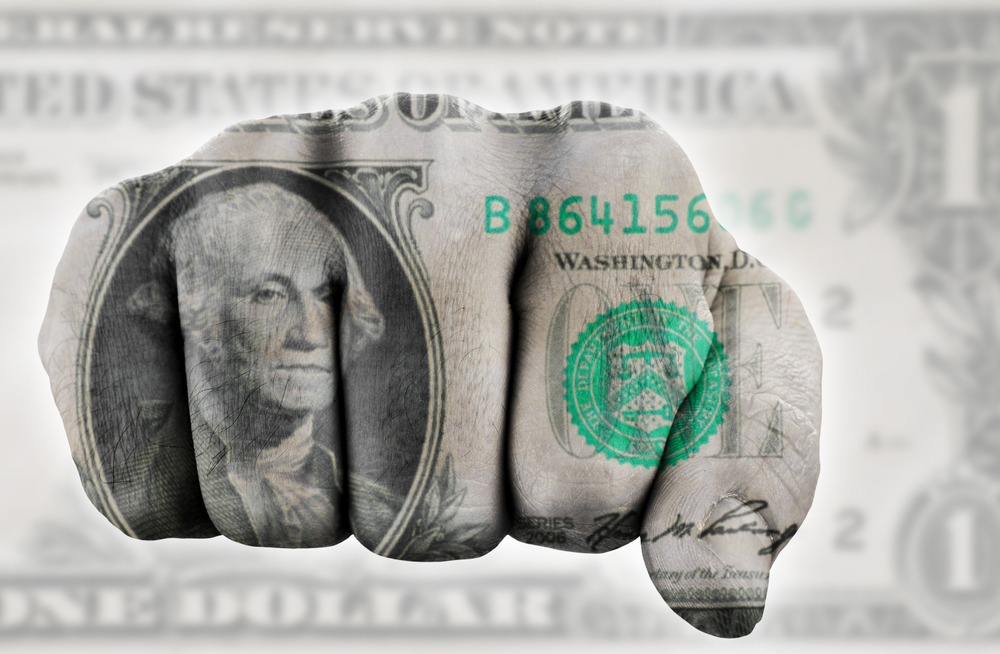Strong Dollar Poses Economic Dilemma in Emerging Markets

Please note that we are not authorised to provide any investment advice. The content on this page is for information purposes only.
When the dollar starts to gain ground, it comes as a double-edged sword for economies in the emerging markets. Generally a strong dollar means more expensive imports for the emerging markets especially from the US. On the other hand, this means that exports from the emerging markets become cheaper in the US and other countries which prefer making their payments in USD.
But as it is always in the dynamic economic environment, there are numerous factors that always come into play and complicate the whole smooth picture.
When the dollar starts to gain ground, it comes as a double-edged sword for economies in the emerging markets. Generally a strong dollar means more expensive imports for the emerging markets especially from the US. On the other hand, this means that exports from the emerging markets become cheaper in the US and other countries which prefer making their payments in USD.
But as it is always in the dynamic economic environment, there are numerous factors that always come into play and complicate the whole smooth picture.
Countries within the emerging markets with protectionist’s economic policies might welcome the strong dollar as good news. This comes to back up their policies which tend to encourage more exports and reduce imports to their countries. The main motive is usually to protect the local companies and industries from an influx of imported cheap competing products. While increasing custom duties and other tariff measures are commonly used to achieve this goal, a strong dollar also perpetuates the same mission and hence it is a welcome dynamic.
In terms of exports, emerging markets may stand to gain from the strong dollar as their exports become relatively cheaper. Essentially, the expectation would be that there will be increased exports to the US and other countries paying using the USD. However, senior analyst Naeem Aslam from AvaTrade- the forex broker observes that based on historical trends, a bump in imports by the US in the short-run due to the strong dollar is unlikely. This he explains is due to the economic lag before US companies make changes to their procurement schedules; which are at times fixed on long term basis.
The same dilemma facing exports from emerging markets also faces their tourism sectors. With a strong dollar, it would be expected that more tourists will flock the emerging markets and enjoy leaner travelling budgets while there. However, with tourists taking time to plan for their travelling and getting leaves from their jobs, the strong dollar will not automatically translate to higher tourist numbers in the emerging markets. In Kenya, tour operators say they do not foresee a rise in tourism numbers based on the strong dollar due to the threat of terrorism that has led to tourist numbers going down by 25% for the past six months to date.
Another interesting dynamic are the USD dominated external debts that most emerging economies have. The Economist observes that about $4.5trillion of US debt stock out of America is held by companies in the emerging markets. As the dollar continues to be stronger, the dollar dominated debts get more expensive and this becomes a new headache for the emerging economies. An argument can be made about the emerging economies having both liabilities and assets dominated in the USD; but when all is said and done, the net impact is always that their liabilities exceed their USD assets.
Stock markets in the emerging economies could also look lucrative with the strengthening dollar. Popular traders in the markets claim that money is made when buying and not when selling. If that were to hold true in this case, foreign investors would rush to invest in the emerging economies’ stock markets due to the relative cheap stocks on a dollar basis. However, it turns out that the same investors will lose when cashing out their investments and converting them into USD from a depreciating currency. This further complicates the investor decision, leaving many in a dilemma.
There are many other factors at play in this scenario; but regardless which factors you choose to pick and analyze, the end results is an economic dilemma. However, there is an obvious lose on the side of emerging economies whose national policies are sometimes driven by policies made by the US and those whose currencies are pegged on the USD.




